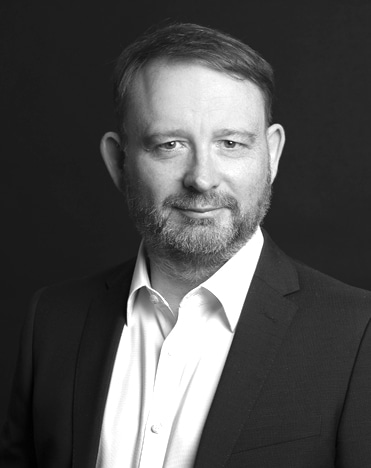Does Apple use OKRs?
Yes, Apple is one of the many companies who have successfully implemented OKRs into their business strategy. In fact, Apple was one of the first companies to really publicize their use of OKRs back in 2000.
If you’re wondering whether or not Apple still uses OKRs today, the answer is yes! Apple has continued to use OKRs as a way to measure and track progress across all divisions of the company.
Apple CEO Tim Cook has been a vocal advocate of OKRs, and has reportedly implemented a number of changes to Apple’s OKR process in order to drive innovation and focus the company’s efforts on key priorities. It’s worth noting that the use of OKRs at Apple, like at any other company, is likely to be tailored to the specific needs and goals of the organization.
What is Apple's history with OKRs?
Apple has a long history with OKRs, dating back to the early days of the company. The late Steve Jobs was a big proponent of using OKRs to measure and track progress, and he even wrote an article about it in Businessweek in 1982. In the article, Jobs said that OKRs were “the best way we’ve found to keep everyone focused on the same goals.”
Since then, Apple has continued to use OKRs as a key part of its operations. In a 2012 interview, then-CEO Tim Cook said that OKRs were “absolutely critical” to the company’s success. He also said that Apple had been using them for years, and that they helped keep everyone aligned and focused on the most important things.
Today, OKRs are still a vital part of Apple’s operations. According to one report, the company uses them to track progress across all areas of its business, from product development and marketing to sales and customer service.
What makes Apple’s use of OKRs unique is the way that they’re incorporated into the company’s culture. Unlike other companies where OKRs are seen as something that top managers use to control and motivate employees, at Apple they’re seen as a tool for everyone to use to improve their own performance. This bottom-up approach has helped create a culture of excellence at Apple, where everyone is constantly striving to do their best work.
How do Apple's current OKRs work?
Since its founding in 1976, Apple has become one of the world’s most successful companies. In 2018, it was the first U.S. company to reach a market value of $1 trillion. A big part of Apple’s success can be attributed to its use of OKRs (Objectives and Key Results).
OKRs were first popularized by Intel in the 1970s as a way to measure and track progress towards specific objectives. OKRs have since been adopted by many other organizations, including Google, Amazon, and Facebook.
Apple’s current OKRs are closely guarded secrets, but we can get an idea of how they work by looking at the company’s past OKRs. For example, in 2013, one of Apple’s objectives was to “ship great products on time with high quality.” This objective was broken down into several key results, including shipping new products on time and reducing defects in existing products.
To achieve these results, Apple likely had multiple teams working on different aspects of product development, such as design, engineering, manufacturing, and testing. Each team would have its own set of goals that contribute to the overall objective.
By setting specific objectives and measuring progress with key results, Apple is able to ensure that its products are shipped on time and meet high quality standards. This helps the company maintain a competitive edge in the marketplace and continue its impressive growth trajectory.
It’s a big yes
So in conclusion, Apple does use OKRs as part of its management strategy. By setting measurable goals and tracking progress towards them, teams can stay organized and motivated to achieve their objectives in a timely manner. This approach has helped Apple become one of the most successful companies in the world, so it’s no surprise that they continue to utilize this system for continued success.
2024 Priorities & Plays
- Ensure you have a source of advantage, ideally a superpower.
- Get ahead of comp. and win the battle of customer value and experience.
- Ensure the people interacting with customers are part of your strategic discussions.
- Incorporating technological change - AI, Machine Learning, Automations. to compete on productivity, employee and customer experience.
- Develop and maintain a super healthy core business, this is the engine room of growth.
- Modernize approaches to strategy execution with better management systems.
- Lead on talent management, development, and hiring, and leverage employees uniquely human advantage in areas like creativity, empathy and relationship building.
The Good Strategy Test
- 2 - 4 mins
- Answer 7 questions and discover how good your strategic capability is, and where it might be improved.
Execution Capability Test
- 2 - 4 mins
- Answer 5 questions and discover how good your execution capability is, and where it might be improved.
Free Consultation
Meet Us
- Meet a few of the people you'd be working with.
- Ask questions.
- Share what you'd like to achieve.
- Find out how we'd approach the opportunity.
Who Will Be On The Call
- United Kingdom
Ashtead
KT21 1RZ
+44 20 7046 1328

- United States
New York
NY 10013
+1 646-718-4720
- ZOKRI helps leaders and teams achieve strategic goals using the OKR (Objectives & Key Results) framework. Our platform aligns strategy, goals, and people, fostering engagement and growth through comprehensive training and management systems.
© ZOKRI 2025 All rights reserved | Privacy Policy | Terms & Conditions | GDPR
Contacts Us
Tell us what you need. We'd be delighted to help.
"*" indicates required fields

